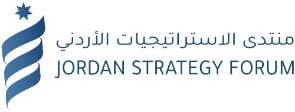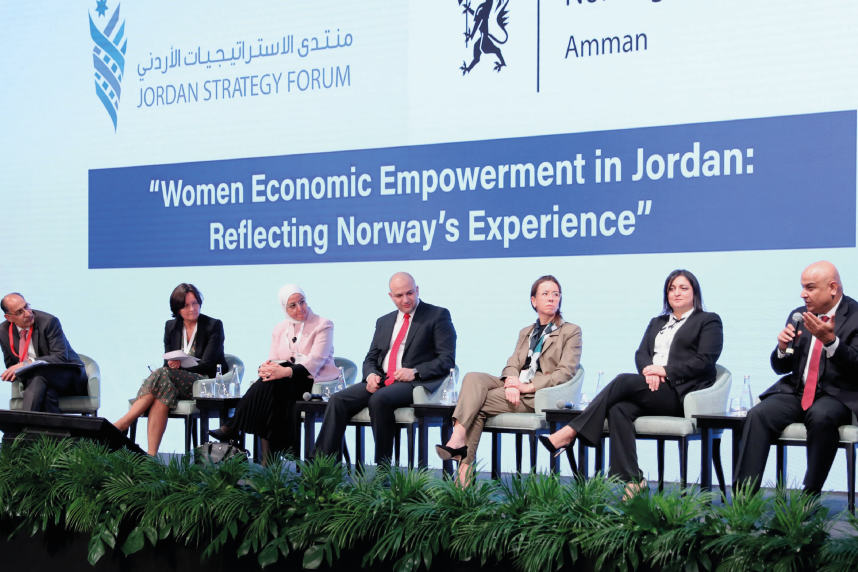Panel Discussion on Women’s Economic Empowerment in Jordan Together with the Jordan-Norway Business Forum
02-03-2020
Jordan Strategy Forum held a panel discussion on women’s economic empowerment in Jordan together with the Jordan-Norway Business Forum. The panel addressed several issues that concern female empowerment. In her speech, the Norwegian Minister of Trade, Iselin Nybo, indicated that gender equality is not only about fairness, but also smart economics. “No state can fully reach its potential without including females in its labor market” she added. In addition, Nybo highlighted the Norwegian females’ exemplary contribution to the economy, where 30% of entrepreneurs in Norway are female. Despite having one of the highest numbers in world in female labor force participation, Nybo also announced that the Norwegian government issued an action plan for female entrepreneurship to enable female students to run businesses, participate in hackathons and have access to empowering education. The minister of the Digital Economy, Mothana Gharaibeh, said that equipping people with 21st century skills is an important step for future development. “Transportation, day cares and pay equity are 3 major challenges that Jordan's labor market faces”. Ghariabeh outlined the major obstacles that deter females from entering the labor force. Also, Gharaibeh added that the ministry is committed to create an enabling environment for women to grow economically. To do so, Gharaibeh announced the establishment of “incubators will be distributed across the country to open up the opportunity for all females to become entrepreneurs.” The CEO of Jordan strategy forum, Dr. Ibrahim Saif stated that there are legal, social, and economic obstacles for women economically participating in Jordan. Saif stressed the importance of public-private partnerships in removing obstacles and challenges to economic participation. Saif said that the Forum, as an independent think tank, attaches special importance to the issue of women's economic empowerment. Maren Kyllingstad, CEO of ‘Eidsiva Energi’ said that since the early 1970s until today, female participation in Norway has increased by 85%. Naturally, this has brought several economic gains. Kyllingstad also stated that the provision enabling conditions for fathers to become caregivers like mothers is a necessary step to maintain balance in the labor force. Heidi Austlid, the head of ‘IKT Norge’, stressed the importance of public policy reform that aims at inclusive participation in the labor market. Austlid pointed out that “to attract different types of leaders, we need to show diversity in role models.’’ Saroj Kumar Jha, the head of World Bank ‘Mashreq’, said that women play a crucial role in peacebuilding in the MENA region. “In peace talks, women should articulate what challenges are faced by diverse groups,” he added. Regarding Jordan, Kumar expressed his optimism regarding the inclusion of women in the Jordanian labor market: “I am optimistic that Jordan will demonstrate on how to leap frog in female participation through entrepreneurship” Kumar said. Nisreen Barakat, a former Jordanian Minister discussed several obstacles that face women in the labor market in Jordan. She explained that Jordanian females prefer working in the public sector due to the weak enabling environment for women in the private sector. In the same regard, she also pointed, “Jordanian females have a very impressive success record in the judicial sector.” Rasha Laswi, lawyer and partner at Andersen Tax Legal, concluded the discussion by indicating that that every female is able to succeed despite the circumstances she faces, and this requires determination and diligence and an initiative to achieve success. Laswi also stressed the importance of having a supporting family which is one of the most important enabling factors for the success of women in Jordan and the region.


